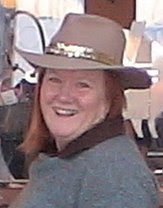When do you speak out, and when do you remain silent?
In a social situation, an individual makes a statement that you, personally find offensive. Do you say anthing? Do you take that person aside later and explain that their statement offended you?
These things are/can be incredibly nuanced.
Years ago, when I was still working, I attended a "Diversity Day" observance. Throughout the day, various ethnicities and cultures that we regularly encountered in the workplace did presentations. Most of the presentations were cultural. There were songs and dances by a variety of groups.
Before lunch, a prayer was offered by one of the Native American presenters. The prayer was evangelical Christian.
Why would I find this offensive?
REGARDLESS of my own beliefs, this was a gathering celebrating a multiplicity of cultures. I found the prayer to be highly exclusive as a reflection of multi-culturalism. There were persons there who were not evangelical, nor even Christian.
I also found it offensive that a Native American who had been invited to share something of their culture that had not been assimilated into western european culture was evidencing a rejection of any pre-anglo religious beliefs and practices they might have still retained.
I said nothing. I did nothing. I did not even discuss it (until now).
Was I a coward?
Subsequent to the observence, a co-worker commented very derogatorily regarding two of the different dance troups. With respect to one, he opined;"I could do that dance. There was nothing to it!" The steps might have been simple. But his demeaning it indicated that he took away NO comprehension of the type of culture where such a dance would develop.
With respect to the second troup, my co-worker stated that if we had heard one of the (absloutely outstanding) dancers speak, we would have known that he was gay. (This co-worker was extremely homophobic.)
I have always regretted that I did not speak out to my co-worker. Whether or not the dancer was straight or gay had NO bearing whatsoever of a striking performance.
I was a coward. My co-worker's comments offended me. There I had NO excuse for not stating that the simplicity of the steps of a dance might have indicated the hardships of the life in a culture where such a dance developed. The sexual orientation of a dancer takes nothing away from the admiration of the performance.
So, the question remains, when I hear somone espousing a position that is not representative of EVERYONE in the room, should I speak up, or just quietly wince and castigate myself later?
Subscribe to:
Post Comments (Atom)

It's a tough call. As for the prayer, the only person you could really complain to is whoever was running the "Diversity Day" (I'm guessing it was the EEO Office). The other one is a different story. It was a co-worker who deserved to be told what he said was offensive. In the workplace, all sorts of things make for "hostile environments" and your example is one. It's not easy to call ignorant people on their ignorance, but if it's not done, it happens over and over. He obviously was wasting his time at a diversity day observance, because he showed no appreciation or understanding of diversity. Some people will never change their attitude, and while he might be one of them, people in workplaces must be able to change behaviors. His behavior was unacceptable. I know, easy for me to say....
ReplyDeleteTwo points I didn't mention:
ReplyDelete1. He's now retired
2. He was my immediate supervisor.
Oh. Tricky. I've mostly been a coward too in these situations, but lately I'm more likely to say something, but preferably not to make the other person feel bad (two wrongs not making a right). How about a simple statement of one's own stand or opinion or a positive comment to counteract the negative? I do think it's important for us to speak up so the other person doesn't leave with the impression that their view is shared. But yeah, easier said than done.
ReplyDelete